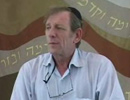- Torah Portion and Tanach
- Shlach Lecha
24
In advance of sending out the M’raglim to scout
the Land of Israel in order to discern its
strengths & weaknesses, Moshe changes the name of
his faithful disciple from Hoshea to Yehoshua,
adding a Yud (that stands for G-d). His name now
reads "Yah-Hoshea," that can mean, "May Hashem
save you" (from the influence of the other spies).
But was Yehoshua’s name not changed much earlier,
when he began to apprentice to Moshe? And why did
Moshe reach out to Yehoshua & not to Calev? And
why does the phrase, "V'elah Ha-Shemot, & these
are the names (of the spies)" both precede and
follow the actual names? That last phrase is entirely unnecessary in the text!
Clearly, the Torah is telling us that names are
crucial; they are the key to understanding one’s
strength & personality. Indeed, the bestowing of
a particular name upon someone not only
memorializes someone from the past, but
also has the power to imbue him or her with
certain qualities that mystically will help & protect them in the future.
Calev, as the pasuk points out, descends from
Yehuda & inherits his persona. Yehuda is a lion,
unafraid to stand up & speak out when necessary,
just as Yehuda stood up to Yosef in Egypt & spoke
out in defense of Binyamin & just as Yehuda's
future descendant David stood up to & spoke out
against Galyat (Goliath). In fact, "Calev" can be
read as "Kelev," a dog, who is always ready to "bark" in defense of its master.
But Yehoshua is different; he descends from
Yosef. His family DNA is strong on holding back,
remaining stoically silent in the most difficult
of situations. So Rachel is silent when her
beloved Yakov marries her sister Leah; Yosef
holds back & waits patiently to reveal his
identity to his brothers in Egypt; Binyamin does
not tell his father that his brothers sold Yosef
into slavery, & Esther does not reveal, until the
last, critical moment that she is Jewish.
Moshe knows this, & he wants to be sure that
Yehoshua will not hold back in this situation,
that he will speak out forcefully against the
other spies & positively motivate the nation to
trust G-d. And so, to fortify & embolden him,
Moshe bestows upon him a name of strength that
incorporates Hashem as his faithful savior. It is
recorded here & now, when it most comes into play & is needed.
Alas, Yehoshua & Calev did not succeed in their
noble task. The Meraglim prevailed, sealing their
fate & that of their entire generation; the
nation would wait 40 years to enter Israel. But
now, we are here, & we must believe that we will
be victorious in the war we are currently waging,
& that we will stay in this land forever more. It
is incumbent upon us that, we, too, speak up and
speak out in defense of teh State of Israel and
the holiness of the Jewish People.

Despising the Desirable
Parashat Shelach Lecha
Rabbi Yossef Carmel | Sivan 5765

For God's Sake Don't Go To Israel
Israel National Torah
Baruch Gordon | Sivan 19 5780

Converting the Land
Rabbi Yossef Carmel | 5773

Giants and Grasshoppers
Parashat Shlach Lecha
Rabbi Reuven Grodner | 5765

Children in Diapers in Shul During Davening
Various Rabbis | 5774

The spirituality of listening
Rabbi Jonathan Sacks | Av 21 5776

The Religious View of the Secular State of Israel
Rabbi Ari Shvat | 5769

What Is the Significance of the Number 40 in Jewish Tradition?
Rabbi Stewart Weiss | Tevet 4 5782
Daf Yomi Makkot Daf 7
R' Eli Stefansky | 17 Nisan 5785

Refuting Criticism by the Ridbaz – #311 – part IV
Date and Place: 19 Sivan 5670 (1910), Yafo
Beit Din Eretz Hemda - Gazit | Nisan 5785

The Solution to 'Risky' Intellectual Topics
Ayn Aya, Shabbat v, 72
Rabbi Ari Shvat | Nisan 5785





